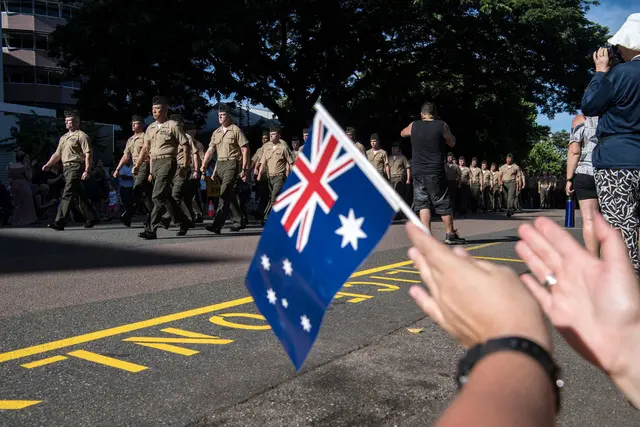Support for Germany's Social Democrats (SPD) hit a record low, a poll showed, and the party's leader-in-waiting said she had "no Plan B" should members reject a coalition deal with Angela Merkel's conservatives.
The SPD's 464,000 members vote in a postal ballot beginning on February 20 on whether the center-left party should go ahead with the agreement its leaders clinched last week to renew their power-sharing alliance with the chancellor's CDU/CSU bloc.
"I am convinced we will get a majority," Andrea Nahles, who senior SPD officials this week endorsed as the party's future leader, told Der Spiegel magazine in comments published on Saturday. "I don't have a Plan B." Nahles made the comments after a survey conducted by pollster Infratest dimap from February 13 to 15 showed support for the SPD fell to 16 percent, an all-time low and just one percentage point ahead of the far-right Alternative for Germany.
Andrea Nahles, caucus leader of the Social Democrat Party (SPD), speaks during a party conference in Bonn, Germany, January 21, 2018.
The SPD has slid further into disarray since its leaders struck the coalition deal, blighted by bitter divisions over whether to team up again with Merkel, a loss of confidence in outgoing leader Martin Schulz and discontent over the succession process.
"The past days were very difficult, that is true, and that is reflected in such numbers," said Nahles. "But I am very hopeful we can that we can now start moving forward."
The turmoil in the SPD has led to calls from some politicians in Merkel's conservative bloc to drop the coalition plan and form a minority government instead.
On Tuesday, the SPD appointed Hamburg mayor Olaf Scholz as interim leader and recommended Nahles as Schulz's longer-term successor.
Nahles has campaigned for a re-run of the coalition that has been in power since 2013, and last month helped secure party delegates' backing for the negotiations with a barnstorming speech.
But the result of the members ballot, due on March 4, is wide open.
Many in the party harbor misgivings about sharing power with Merkel, believing the party should rebuild in opposition after suffering its worst result in last September's election since Germany became a federal republic in 1949.
German Chancellor Angela Merkel addresses a news conference after talks with Italian Prime Minister Paolo Gentiloni in Berlin, Germany, February 16, 2018.
An influential member of Merkel's conservative bloc said on Friday she should form a minority government, arguing the Social Democrats would not be a reliable partner.
The Infratest dimap poll for broadcaster ARD put support for Merkel's conservative bloc at 33 percent, with the ecological Greens on 13 percent, the radical Left party as on 11 percent and the business-friendly Free Democrats (FDP) on 9 percent.
(REUTERS)
 简体中文
简体中文

